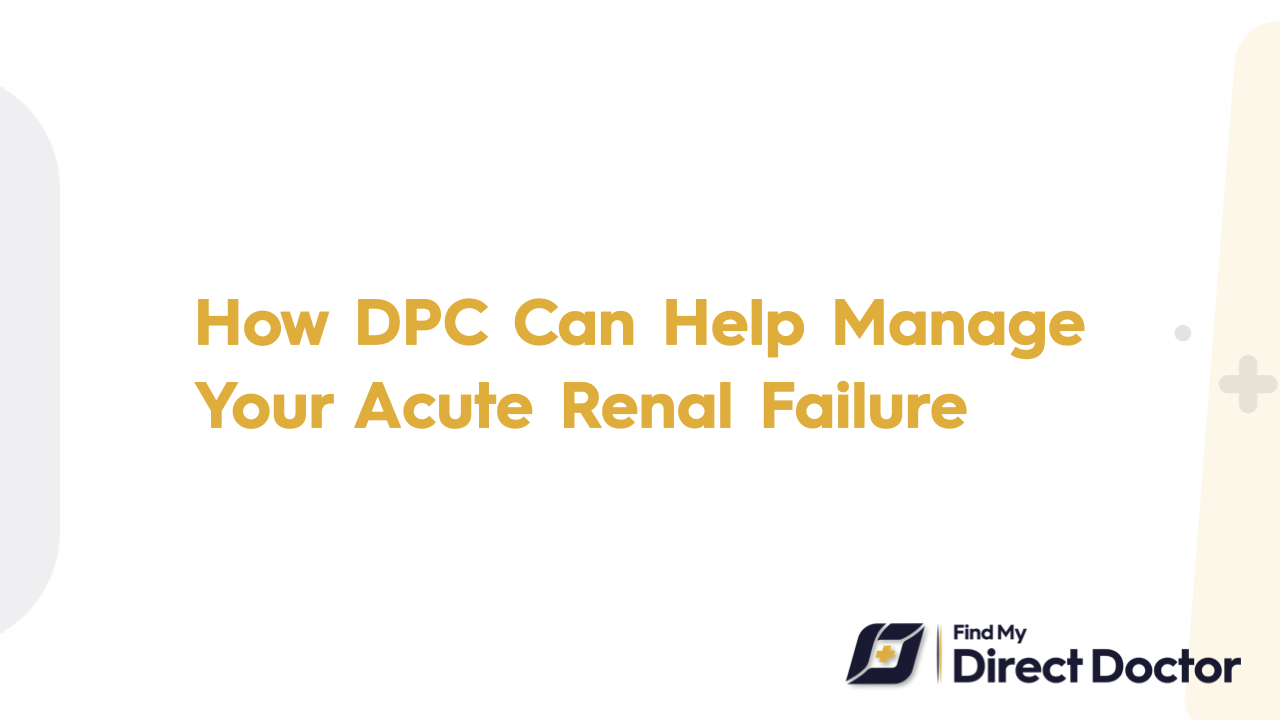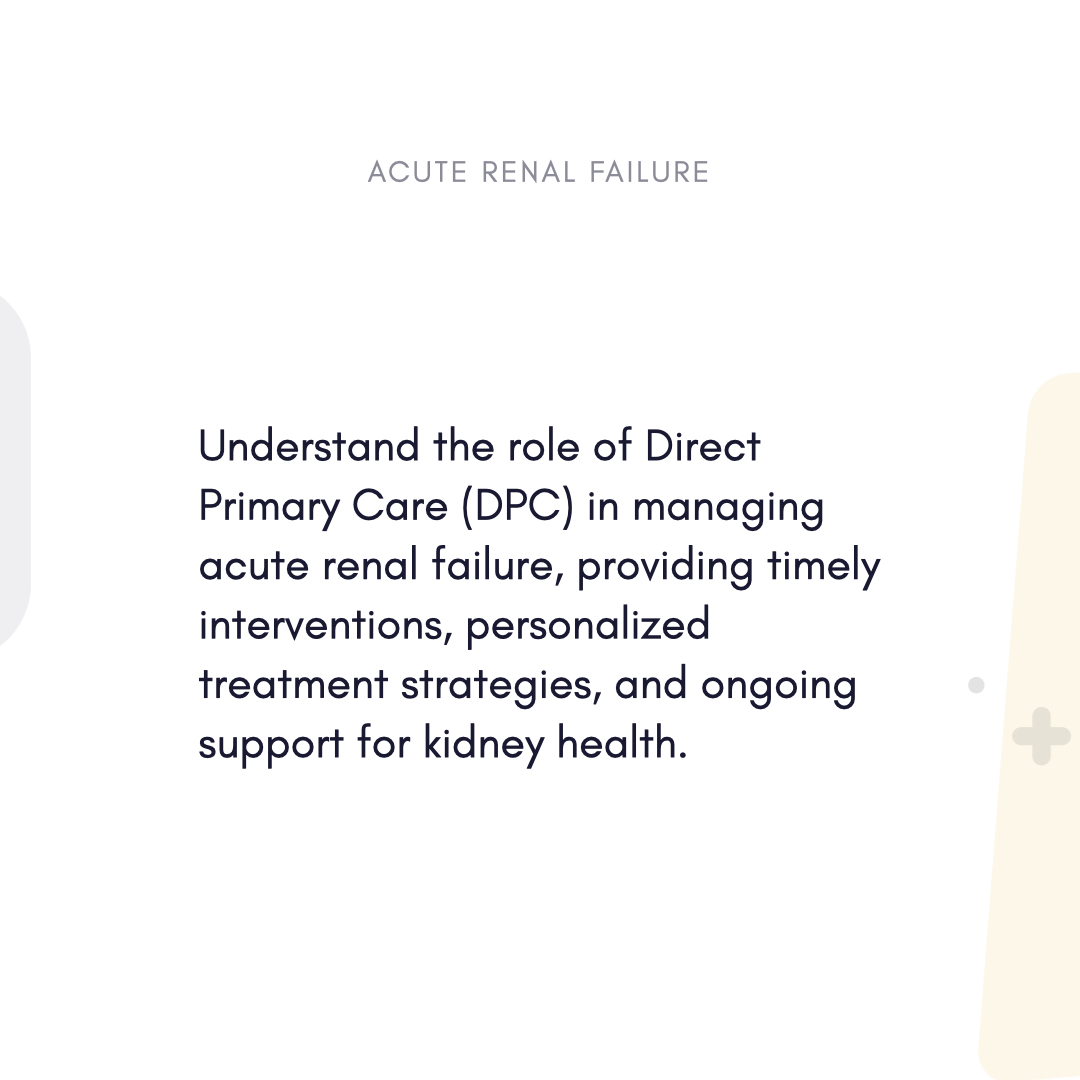



An acute kidney injury (AKI) is a sudden loss of kidney function caused by a variety of factors, such as dehydration, severe infection, medication toxicity, or obstruction of the urinary tract. In order to prevent complications and promote kidney recovery, acute renal failure must be recognized, treated, and monitored as soon as possible. In this article, we will discuss how Direct Primary Care (DPC) can play a crucial role in effectively managing acute renal failure.

Acute renal failure is characterized by a rapid decline in kidney function, leading to a build-up of waste products and electrolyte imbalances in the body. Patients with acute renal failure need early detection and intervention in order to prevent further damage to their kidneys and improve outcomes. Some symptoms include decreased urine output, fluid retention, swelling, fatigue, and confusion.
In a DPC model, patients have direct access to their primary care provider without the need for referrals. In acute renal failure, this accessibility is especially useful as it allows for prompt diagnosis and evaluation of the underlying cause.
Acute renal failure often requires the coordination of nephrologists, dietitians, pharmacists, and other specialists to manage. In order to manage acute renal failure and its complications optimally, DPC providers facilitate communication and collaboration with specialists as needed.
DPC providers emphasize prevention as a means of reducing the risk of acute renal failure and its recurrence. To promote overall health and protect kidney function, education may include hydration, medication management, and lifestyle modifications.
Depending on the underlying cause and severity of kidney injury, acute renal failure treatment plans vary. Each patient's unique circumstances, medical history, and treatment goals are considered when designing a management plan for DPC.
In acute renal failure, maintaining fluid and electrolyte balance is crucial. To prevent dehydration, electrolyte imbalances, and other complications, DPC providers closely monitor fluid intake, urine output, and electrolyte levels and adjust treatment accordingly.
In order to prevent recurrence of acute renal failure, patients require long-term monitoring and support after recovering. To ensure a patient's long-term kidney health and overall well-being, DPC providers offer continuity of care, including continuous monitoring, surveillance, and support.

The benefits of Direct Primary Care for individuals with acute renal failure are significant. Patients are empowered to manage their condition effectively and promote kidney recovery with DPC, which offers prompt evaluation, comprehensive care coordination, personalized treatment plans, and long-term monitoring. The patient-centered approach to healthcare enables patients with acute renal failure to navigate their recovery with confidence and resilience by receiving the specialized attention and support they need.
Previous Post
Next Post